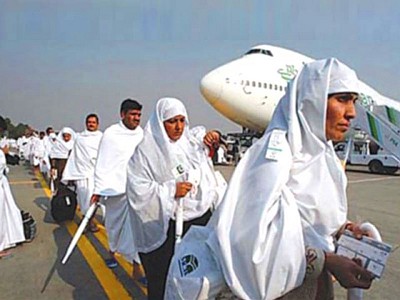
By: Majorie van Leijen
Source: emirates247.com
The month of Ramadan is one of the peak times for Umrah, the pilgrimage to Mecca in Saudi Arabia.
Many Muslims are expected to go from the UAE to the Kingdom in July and August this year.
With regards to recent reports of cases of the Middle East Respiratory Syndrome (MERS) coronavirus in Saudi Arabia, the World Health Organisation (WHO) has issued some travel tips for a safe and healthy trip.
Since September 2012, more than 50 cases of MERS coronavirus have been identified in Saudi Arabia, Jordan, Qatar, and the UAE. France, Germany, Italy, Tunisia and the UK also reported laboratory-confirmed cases; these cases were either transferred there for care of the disease or travelled from the Middle East and subsequently became ill.
This weekend, Saudi Arabia’s Ministry of Health reported an additional laboratory-confirmed case, that of an 83-year-old-man from Al Ahsa. He died on May 31.
With the latest case, the total number of confirmed laboratory cases stands at 55, of which 31 cases resulted in death. Most cases were found in Saudi Arabia.
Thus far, the mode of transmission remains unknown. All human-to-human transmission has occurred either in a household, work environment, or healthcare setting. The virus is thought to be of animal origin but so far it has not been identified in any animal species, so nothing can be said about the animal species. The specific types of exposures that result in infection are also unknown.
However, the WHO announced in its latest travel recommendation that although the source of the virus and the mechanism of transmission is unknown, it would be prudent to try to reduce the general risk of infection while travelling. It provided the following tips:
- Avoid close contact with people suffering from acute respiratory infections;
- Wash hands frequently, especially after direct contact with ill people or their environment;
- Adhere to food safety and hygiene rules, for example avoid undercooked meats, raw fruits and vegetables unless they have been peeled, or unsafe water;
- Avoid close contact with live farm or wild animals.
Moreover, it recommends travellers who develop symptoms either during travel or after their return to seek medical attention and to share their history of travel.
People with symptoms of acute respiratory infection should practice cough etiquette (maintain distance, cover coughs and sneezes with disposable tissues or clothing, and wash hands) and delay travel until they are no longer symptomatic.
Infection with the virus most commonly presents itself as acute pneumonia, with symptoms such as fever, cough, and breathing difficulties, while atypical symptoms such as diarrhoea have also been recorded in patients with immunosuppression. Infection with the virus has also caused kidney failure.
No travel restrictions have been imposed thus far by the authorities in Saudi Arabia, nor does the WHO advise any travel or trade restrictions or special screening at points of entry.
During the Hajj season of 2012, a surveillance program was carried out by the authorities in the KSA. Ziad Memish, Deputy Minister of Health, explained during the recent annual World Health Assembly meeting that case-based surveillance was carried out in both Mecca and Madina, in addition to close monitoring of the novel coronavirus throughout the season in order to guarantee early detection of cases between pilgrims and local residents.
Although 190 suspected cases were reported from Madina and 86 from Mecca, all samples were tested negative and thus far no outbreak has been reported around the holy cities.
The spread of the virus has predominantly taken place in Al Ahsa Governorate, where the first case was identified and where human-to-human transmission was seen among people associated with one healthcare facility.
Currently teams of specialists such as virologists, epidemiologist, infection control experts, environmental specialist, veterinarians and clinical therapeutic trial experts are on the ground to study the activity of the virus.
“If we look at the related SARS virus, which broke out in 2003, the scale of this outbreak is very limited. I think we should benefit from where we stand now; we have the time to study the virus, and take precautionary measures,” said Daniel Lucey, a virus outbreak specialist from the US who recently visited the UAE to discuss the situation with local specialists.
“It is very important all entities share the available information with everybody, but without creating panic. People should be aware of the situation, and take the necessary action.”
He added that he recommends a WHO meeting be held in the Middle East before Ramadan to discuss the challenges regarding increased international travel during this month. Discussions to organize such meeting are ongoing.



